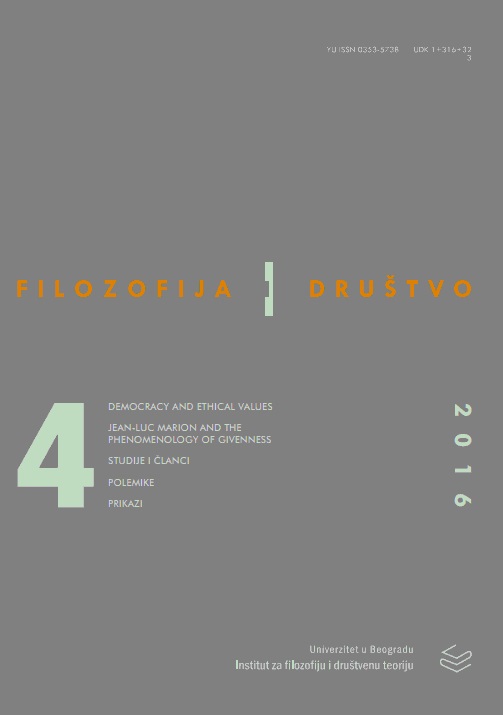Democratic Values, Emotions and Emotivism
Democratic Values, Emotions and Emotivism
Author(s): Bojan VranićSubject(s): Political Philosophy, Political psychology
Published by: Institut za filozofiju i društvenu teoriju
Keywords: democracy; emotivism; emotional judgments; moral disagreement
Summary/Abstract: The aim of this paper is to explore the relation between democratic values and emotions. The author argues that democratic values and emotional judgments are inter-reducible: political agents use emotional judgments to reflexively evaluate normative paradigms of political life. In the first part of the paper, the author describes the state of emotions in contemporary political philosophy and identifies Charles Stevenson’s ethical conception of emotivism as the first comprehensive attempt to neutrally conceptualize emotions in moral and political thinking. The second part of the paper explores the shortcomings of emotivism and finds an adequate alternative in Martha Nussbaum’s concept of emotional judgment as the one that contains beliefs and values about social objects. In the final part of the paper, the author identifies that moral and political disagreements emerge in democracies from ranking of the importance of political objects. The evaluation criteria for this type of ranking is derived from democratic values which are reducible to agents’ emotional judgments.
Journal: Filozofija i društvo
- Issue Year: 27/2016
- Issue No: 4
- Page Range: 723-738
- Page Count: 16
- Language: English

